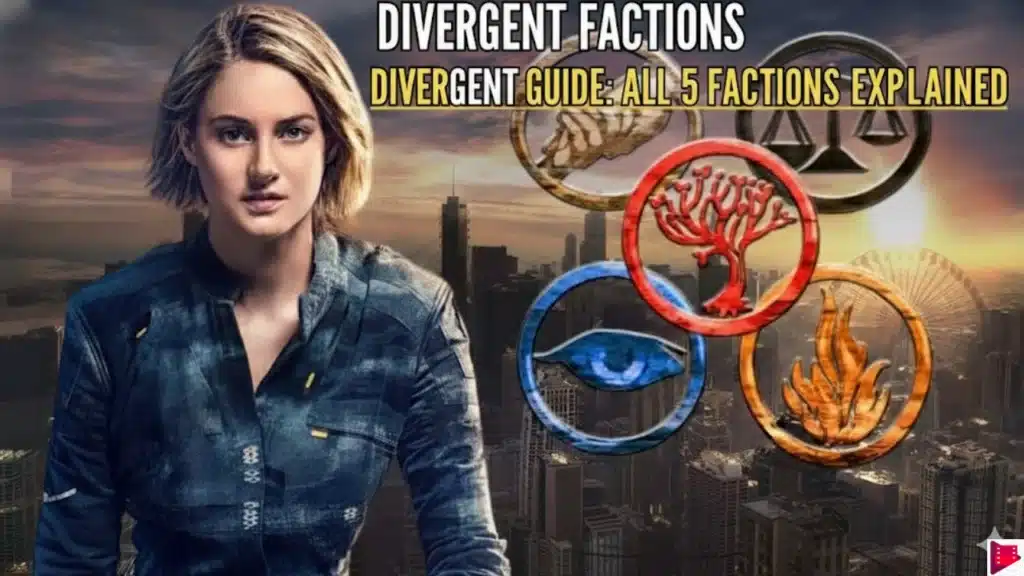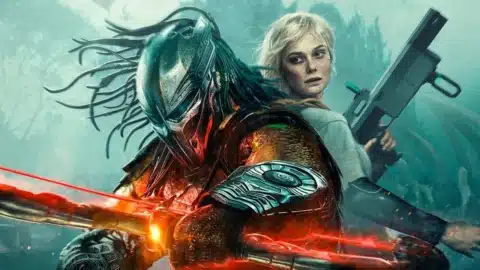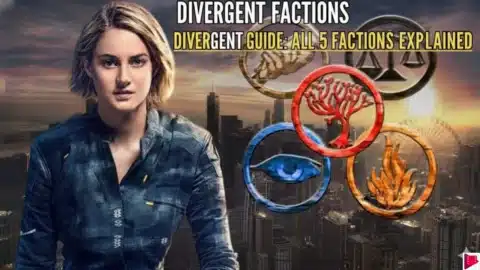When people talk about the Divergent universe, the first thing they usually mention is the factions. They’re the backbone of society, the political structure that shapes identity, and the system that defines who belongs where. Yet the more you look at the factions, the more you realize Veronica Roth wasn’t simply inventing a futuristic sorting system; she was building a psychological map of humanity.
Today, millions of readers still search for terms like divergent factions, what faction am I, and Divergent faction meanings because the idea of categorizing society by virtues is both fascinating and unsettling. Each faction represents a value taken to its extreme, and every character becomes a product of the world’s attempt to force people into narrow identities.
This guide breaks down all five Divergent factions, explains their core philosophies, explores the aptitude test, and clarifies what it means to be Divergent in a way that goes far deeper than the films.
What Are the 5 Factions in Divergent?
The Divergent society is divided into five groups:
| Faction | Core Value | Believes Humans Fall Apart Because Of |
|---|---|---|
| Abnegation | Selflessness | Selfishness |
| Dauntless | Bravery | Cowardice |
| Erudite | Knowledge | Ignorance |
| Amity | Peace | Aggression |
| Candor | Honesty | Deception |
Each faction believes its chosen virtue is the solution to human conflict. Together, these factions create a fragile balance, one that eventually collapses under political pressure and hidden agendas.
Below is a full, faction by faction breakdown.
Read Also: Why Predator: Badlands Proves Dan Trachtenberg Is Reinventing the Franchise
1. Abnegation The Selfless
Abnegation members believe society only thrives when people put others first. They avoid vanity, speak with restraint, and live with strict minimalism. To them, selflessness is the antidote to the selfishness that destroyed the world before theirs.
Traits of Abnegation
- Compassion
- Discipline
- Modesty
- Emotional control
- Service to others
They wear grey clothes, avoid mirrors, and rarely express personal preference. In their eyes, wanting too much is the first step toward corruption.
Yet their restraint is exactly why they are chosen to govern. They don’t seek power, so leaders trust them with it.
But this, of course, creates resentment from Erudite.
2. Dauntless The Brave
Dauntless members protect the city’s borders and believe bravery is the greatest virtue. They train in combat, face fears head-on, and often act with reckless intensity.
Traits of Dauntless
- Courage
- Physical strength
- Loyalty
- Risk-taking
- Boldness
They dress in black, move fast, and push themselves past their limits. Their world rewards adrenaline, fear-conquering, and survival instincts.
But Dauntless also reveals something deeper:
Bravery without wisdom quickly becomes cruelty, a lesson shown many times throughout the story.
3. Erudite The Intelligent
Erudite values knowledge above all else. They study, research, and collect data to improve society. Their belief is simple: ignorance is the enemy of peace.
Traits of Erudite
- Logic
- Curiosity
- Innovation
- Precision
- Ambition
They wear blue because it stimulates calm thinking. They pride themselves on intellectual superiority, but their hunger for control turns them into one of the story’s most dangerous factions.
To Erudite, power in the hands of the “selfless” Abnegation feels like an insult to progress.
This tension becomes the spark that ignites the entire Divergent conflict.
4. Amity The Peacekeepers
Amity members value harmony and kindness. They farm the land, maintain food supplies, and try to make life as pleasant as possible.
Traits of Amity
- Compassion
- Cooperation
- Calm temperament
- Mediation skills
- Positivity
Their clothes are red and yellow, symbolizing warmth and vitality. They avoid violence at all costs, sometimes to the point of denial. Amity is the faction that most resembles an ideal community, yet their avoidance of conflict makes them ineffective during crises.
5. Candor The Honest
Candor believes honesty leads to justice. They reject lies, hide nothing, and value blunt truth above politeness.
Traits of Candor
- Transparency
- Rigid morality
- Confidence
- Sharp reasoning
- Impartiality
They wear black and white to represent the simplicity of truth: right or wrong. Their courtroom-style discussions are designed to reveal facts through debate.
But their worldview is extreme.
They treat emotions, hesitation and nuance as weaknesses, something that becomes their downfall.
What About the Factionless?
People who fail initiation or choose to abandon their faction become Factionless. They live outside the system, often working labour, heavy jobs and surviving in poverty.
Factionless individuals are considered dangerous because:
- They have no political voice
- They refuse the system’s rules
- They expose the weaknesses of the faction structure
Their existence proves the truth the government tries to hide:
The system doesn’t work for everyone.
How the Aptitude Test Works in Divergent
The aptitude test is designed to identify which faction someone naturally aligns with. Through simulation, teens face situations tied to each faction’s core virtue.
For example:
- Feeding a dog or protecting a child tests Abnegation
- Confronting danger tests Dauntless
- Solving a puzzle tests erudition
- Navigating a tense conflict tests Amity
- Facing moral choices tests Candor
The test yields one of three results:
- Clear alignment (one faction)
- Split alignment (two factions)
- Divergent (multiple factions)
A Divergent result is considered rare and dangerous.
What Being Divergent Really Means
Being Divergent doesn’t mean being a chosen hero.
It means having the capacity for multiple virtues at once, something the system cannot control.
Divergents can:
- Think independently
- Resist simulations
- Break expectations
- See the flaws in faction ideology
- Demonstrate traits across multiple factions
The government fears Divergents because:
- They ignore narrow labels
- They cannot be brainwashed
- They threaten political stability
- They expose the truth that humans are complex
In simple terms:
Divergents prove the faction system is a lie.
Why the Faction System Collapsed
The faction structure collapses for three main reasons:
1. Human nature cannot be reduced to one virtue.
No one is just brave, just kind, or just intelligent.
2. Power imbalances created resentment and rebellion.
Erudite believed they deserved leadership; Abnegation’s humility made them vulnerable.
3. Divergents became proof of the system’s failure.
If some people don’t fit, the system is flawed.
The collapse wasn’t sudden. It was inevitable.
Final Thoughts
The divergent factions divergent system is one of the most intriguing aspects of the series because it mirrors real-world psychology. Every faction reflects a piece of human identity, showing both the beauty and danger of extreme values. The story’s power comes from its honesty: no virtue can save a society on its own, and no person can thrive inside a single, rigid box.
Divergents aren’t heroes because they break rules.
They’re heroes because they refuse to be simplified.
Frequently Asked Questions
1. What are the five factions in Divergent?
Abnegation, Dauntless, Erudite, Amity and Candor, each representing a different core virtue.
2. Why are Divergents considered dangerous?
They can think independently, resist simulations and expose the flaws in the faction system.
3. What happens if you fail your faction initiation?
You become Factionless, living outside the system without social status.
4. Is the aptitude test always accurate?
No. It reflects tendencies, not destiny; many characters feel torn between two or more factions.
5. Which faction is the “best”?
None. Each has strengths and deep flaws; the story’s message is that humans need balance, not perfection.





